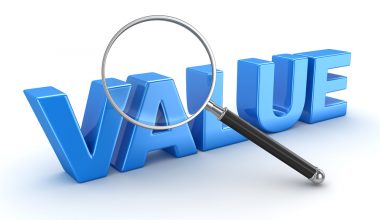Not every investment opportunity is open to the general public. Some are reserved for a specific class of investors known as accredited investors. An accredited investor is an individual or entity that possesses a specific financial status and meets certain criteria. These requirements and qualifications allow an accredited investor access to a range of investment opportunities not available to the public. Generally, this privileged status opens doors to potentially lucrative investments that can provide higher returns or alternative asset classes. Chances are the risk involved is also high, however, understanding how it works, the basic requirements, and qualifications is crucial. Additionally, grasping the dynamics of its operations is key to getting the most out of this wealth ticket. This guide also outlines how to become one in detail.
What Qualifies You as an Accredited Investor?
Anyone who wants to qualify as an accredited investor must have a net worth of at least $1 million or have earned an average income of $200,000 as an individual or about $300,000 as a couple for the prior two years. There’s a catch to the above, too. The investor is expected to maintain this level of income going forward. Additionally, certain entity types, such as banks, investment companies, employee benefit plans, and other institutional investors, are automatically considered accredited investors. The last group are certain types of organizations with total assets exceeding $5 million.
What Is the Purpose of Accredited Investors?
The purpose of accrediting investors is to ensure that individuals or entities participating in private investment opportunities have the financial sophistication and capacity to understand and bear the risks associated with such investments.
This simply means that accredited investors have access to a wider range of investment opportunities. This includes private equity offerings, hedge funds, venture capital investments, and other securities not registered with the SEC. This distinction is intended to provide flexibility for companies seeking capital. It also protects individual investors who may not have the same level of financial resources or knowledge.
Can a Foreign Person Be an Accredited Investor?
Yes, a foreign person can be an accredited investor in certain jurisdictions. In the United States, a foreign person can be an accredited investor if they meet the income or net worth thresholds set by the Securities and Exchange Commission (SEC).
Can I Invest If I’m Not an Accredited Investor?
Of course, you can. Being an accredited investor is not a requirement to invest in the financial markets or participate in various investment opportunities. In fact, the majority of investment options are accessible to non-accredited investors. This allows individuals from all walks of life to grow their wealth and pursue their financial goals.
For non-accredited investors, there are numerous investment avenues available, such as publicly traded stocks, bonds, mutual funds, exchange-traded funds (ETFs), real estate investment trusts (REITs), and more. These investments are regulated and widely accessible to the general public. Additionally, they provide opportunities for individuals to participate in the financial markets.
How To Become an Accredited Investor
Unlike career paths or relevant skills that require a level of education and certification, becoming an accredited investor is different. The specific requirements depend on countries’ regulations, but below is a general overview of how to become an accredited investor
#1. Check Requirements
The first step to becoming an accredited investor is to meet the requirements stipulated. Generally, this is stipulated by the Securities and Exchange Commission (SEC) in the United States.
#2. Verify Eligibility
Review your financial records and determine if you meet the income or net worth requirements. This may involve assessing your income tax returns, bank statements, investment portfolio, property valuations, and other relevant financial documents. However, If you are uncertain about any specific requirements, kindly consult with a financial advisor or securities regulator.
#3. Seek Legal Advice
It can be beneficial to consult with a securities lawyer or financial advisor who specializes in securities laws. This is to ensure you fully understand the regulations and requirements for becoming an accredited investor in your jurisdiction. They can guide you through the process and provide personalized advice based on your circumstances.
#4. Make the Necessary Documentation
Depending on your jurisdiction, you may need to complete specific forms or applications to declare your status as an accredited investor. These documents might require you to provide information about your income, net worth, and investment experience. Follow the instructions provided by the relevant regulatory authority and submit the required documentation as instructed.
#5. Maintain Accreditation Status
Once you have become an accredited investor, it is important to stay informed about any changes to the regulations that may impact your status. For example, in the United States, the SEC periodically reviews the income and net worth thresholds for accredited investor qualification. Additionally, be aware that regulations may vary between different types of investments, such as private equity or hedge funds.
Accredited Investor Requirements
Under Rule 501 of Regulation D of the Securities Act of 1933, the Securities and Exchange Commission (SEC) specifies the requirements to be an accredited investor in the United States. The requirements include the following:
Income Requirements: The individual must have an annual income of at least $200,000 (or $300,000 for joint income with a spouse) for the past two years, with a reasonable expectation of reaching the same income level in the current year.
Net Worth Requirements: The individual’s net worth, or their joint net worth with a spouse, must exceed $1 million, excluding the value of their primary residence. Alternatively, an individual can qualify if they have assets under management (AUM) of at least $1 million, either individually or jointly with a spouse. AUM includes investments such as stocks, bonds, real estate, and other securities.
Certain Entity Types: Certain entities, such as banks, investment companies, employee benefit plans, and other institutional investors, are automatically considered accredited investors. Additionally, certain types of organizations with total assets exceeding $5 million can also qualify.
Knowledge and Experience: While not explicitly stated as a requirement by the SEC, some investment opportunities may require additional knowledge or experience in the financial and investment fields. This is to ensure that the investor has the necessary understanding to assess the risks involved in complex investment strategies.
Why Do People Become Accredited Investors?
There are several reasons why people become accredited investors. First, it significantly gives them a competitive edge in the investment market. Being an authorized investor means you have the financial resources to invest in opportunities unavailable to those with lower net worth or income.
Is a Bank an Accredited Investor?
Not entirely. A bank itself is not considered an accredited investor. Accredited investor status is typically applicable to individuals or specific types of entities that meet certain criteria set by regulatory authorities, such as the U.S. Securities and Exchange Commission (SEC).
However, banks and other financial institutions often have the financial resources and expertise to invest in a wide range of investment opportunities that may be available only to accredited investors. These institutions may have access to private placements, venture capital funds, hedge funds, and other alternative investments through their various investment divisions or departments.
Qualified Purchaser Vs Accredited Investor
A qualified purchaser and an accredited investor are both terms used in the context of securities regulations to determine eligibility for certain investment opportunities. While there are similarities between the two, they are distinct concepts and are used in different regulatory frameworks.
| Qualified Purchaser | Accredited Investor |
| A qualified purchaser is an individual or entity with an investment portfolio worth over $5 million. | An accredited investor is an individual or entity that possesses a specific financial status and meets certain criteria, allowing them access to a range of investment opportunities not available to the general public. |
| A qualified purchaser is a term defined under the U.S. Investment Company Act of 1940. It pertains specifically to individuals or entities interested in investing in certain types of investment funds, such as hedge funds and private equity funds. | An accredited investor is a term used by the U.S. Securities and Exchange Commission (SEC) to determine eligibility for participating in certain private investment opportunities, such as private placements, venture capital funds, and other unregistered securities offerings. |
| An individual with at least $5 million in investments (or investments jointly with their spouse), excluding the value of their primary residence. | An individual with an annual income of at least $200,000 ($300,000 jointly with a spouse) in each of the last two years, with a reasonable expectation of reaching the same income level in the current year. |
| A trust, partnership, or entity with at least $25 million in investments. | Certain types of entities, such as corporations, partnerships, and trusts, with total assets exceeding $5 million. |
What Is the Difference Between a Qualified Investor and an Accredited Investor?
The terms “qualified investor” and “accredited investor” are often used interchangeably, but they refer to different concepts and are used in different regulatory contexts. Below, is a breakdown of the key differences between the two:
| Terms | Qualified Investor | Accredited Investor |
| Regulatory Context | The term “qualified investor” is primarily used in Europe and other jurisdictions outside the United States. It generally refers to an investor who meets specific criteria or qualifications outlined by local securities regulations. The requirements for qualifying as a qualified investor can vary across jurisdictions. | The term “accredited investor” is used in the United States and is defined by the U.S. Securities and Exchange Commission (SEC). It establishes eligibility criteria for certain investment opportunities, particularly in the context of private placements and unregistered securities offerings. |
| Criteria for Qualification | Factors such as an individual’s financial assets, income, net worth, or professional expertise. The specific thresholds and requirements can differ significantly from country to country. | An individual can qualify as an accredited investor based on their income, with an annual income of at least $200,000 ($300,000 jointly with a spouse) in each of the past two years, along with an expectation of reaching a similar income level in the current year. Alternatively, an individual can qualify based on their net worth, which must be at least $1 million (excluding the value of their primary residence). |
| Purpose | The qualification is usually required to ensure that the investor has the necessary knowledge, experience, or financial capacity to understand and assume the associated risks. | Accredited investor status is primarily used to assess an individual’s eligibility for participating in private securities offerings or investments that are exempt from registration with the SEC. |
Conclusion
Once you meet the necessary requirements, investing as an accredited investor has an edge over public securities. However, whether you have what it takes to bear the title or not, investment reamains the key to financal freedom. As so, not being a private investor should never be the reason why you’ll not invest.
- HOW TO BECOME A SUCCESSFUL INVESTOR: Simple Tips For Beginners
- Commercial Real Estate Investor: Meaning, Salary, How to Become & Find One
- Smart Investments: Healthy Tips for Beginners
- WHAT ARE INVESTMENTS? Importance, Types, and How It Works






